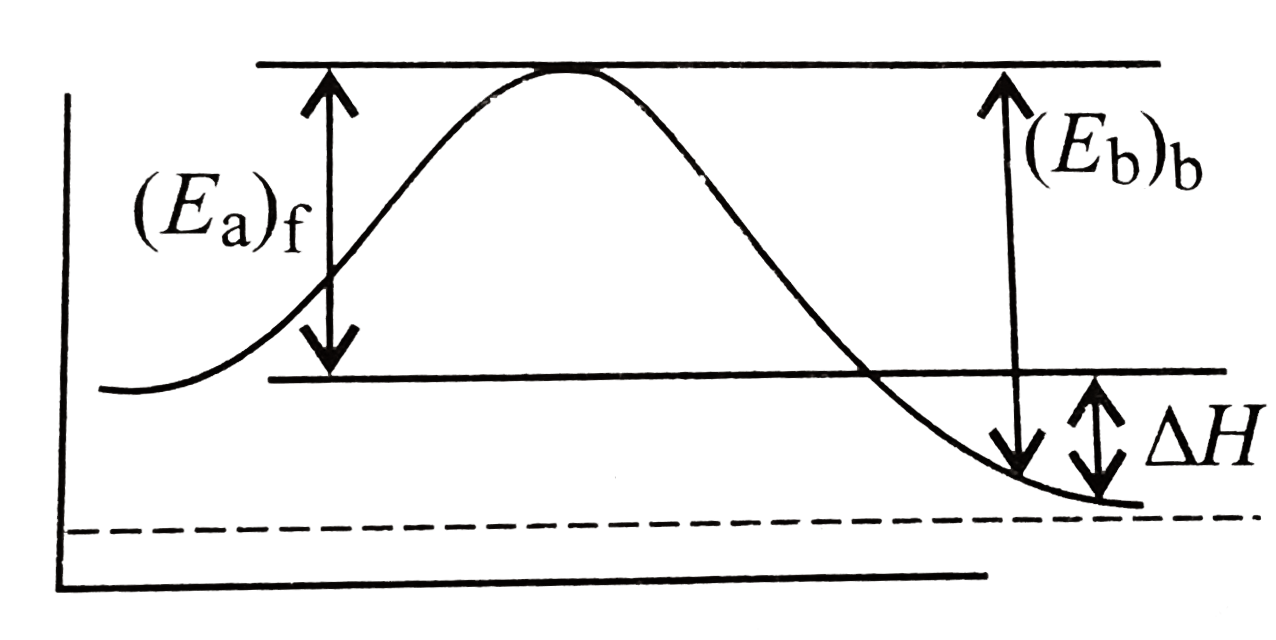For the chemical reaction X Y , the standard reaction Gibbs energy depends on temperature T (in K) as ΔrG0 ( in kJ mol−1 ) = 120−38T . The major component of the reaction mixture at T is
X if T 315 K
Y if T 300 K
Y if T 280 K
X if T 350 K
The correct Answer is:A
ΔrG∘=120∘−38T⇒ For ΔrG∘=0,T=320k
Above 320k,ΔrG∘ is - ve, major component would be Y. While below 320k,ΔrG∘ is + ve and major component would be x.
Topper's Solved these Questions
- BOOK - VMC MODULES ENGLISHCHAPTER - CHEMICAL KINETICS EXERCISE - JEE Advanced (Archive)52videos
CHEMICAL KINETICS
- BOOK - VMC MODULES ENGLISHCHAPTER - CHEMICAL KINETICS EXERCISE - Level-2 ( Numerical Value Type for JEE Main )15videos
CHEMICAL KINETICS
- BOOK - VMC MODULES ENGLISHCHAPTER - CHEMICAL EQUILIBRIUMEXERCISE - IN-CHAPTER EXERCISE - G10videos
CHEMICAL EQUILIBRIUM
- BOOK - VMC MODULES ENGLISHCHAPTER - CHEMICAL THERMODYNAMICS EXERCISE - IN - CHAPTER EXERCISE - L10videos
CHEMICAL THERMODYNAMICS
Similar Questions
The standard reaction Gibbs energy for a temperature T is given by
ΔrG∘=A−Bt
Where A and B are non-zero constants.
Which of the following is TRUE about this reaction ?View SolutionThe standard reaction Gibbs energy for a temperature T is given by
ΔrG∘=A−Bt
Where A and B are non-zero constants.
Which of the following is TRUE about this reaction ?View SolutionWhich of the following can help to predict the rate of reaction if the standard Gibb's free energy of reaction (ΔrG∘) is known ?
View SolutionThe activation energy for the forward reaction X→Y is 60kJmol−1 and ΔH is −20kJmol−1. The activation energy for the reverse reaction is
View SolutionIn an exothermic reaction X→Y, the activation energy is 100kJmol−1 of X. The enthalphy of the reaction is −140kJmol−1. The activation energy of the reverse reaction Y→X is
 View Solution
View SolutionFor a certain reaction the variation of rate constant with temperature is given by the equation
lnkt=lnk0+(ln3)t10(t≥0∘C)
The value of temperature coefficient of the reaction isView SolutionFor a certain reaction the variation of rate constant with temperature is given by the equation
lnkt=lnk0+(ln3)t10(t≥0∘C)
The value of temperature coefficient of the reaction isView SolutionThe activation energy for most of the reaction is approximately 50kJmol−1. The rate for temperature coefficient for such reaction will be
View SolutionStatement -1: For every chmical reaction at equilibrium , standard Gidds energy of reaction is zero
Statement-2: At constant temperature and pressure , chemical reactions are spontaneious in the direction of decreasing gibbs energy.View SolutionVan't Hoff's equation for a chemical reaction under equilibrium is given by standard reaction enthalpy at temperature T and K is the equilibrium constant . Predict how K will vary with temperature for an exothermic
View Solution

